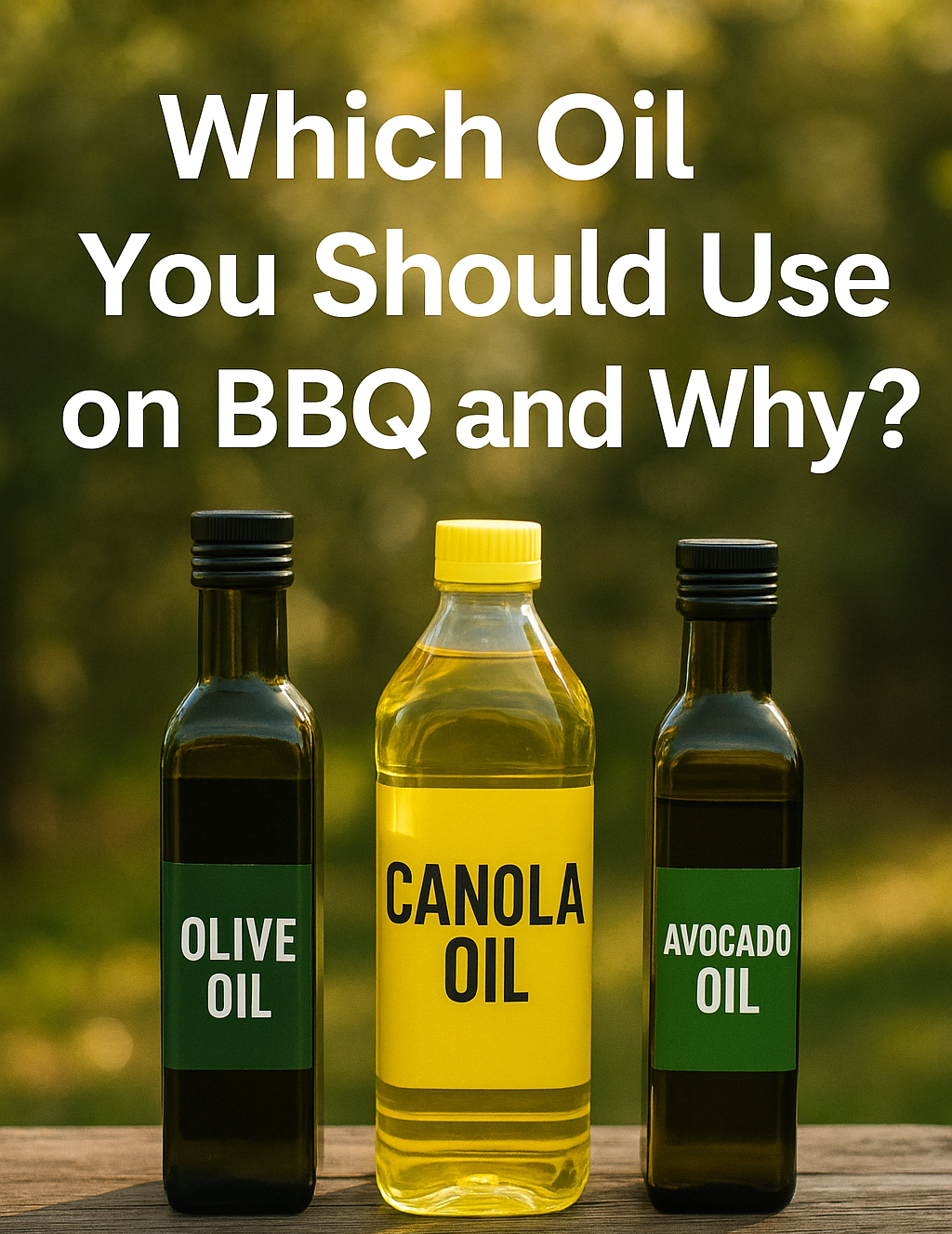
Which Oil Should You Use on BBQ & Why?
Share
Why Oil Choice Matters on the BBQ
When you’re setting up your bbq plate or bbq grill, it’s easy to overlook what oil you’re cooking with. But the oil you choose has a big impact on flavour, safety, and the performance of your BBQ. Using the wrong oil can cause flare-ups, burnt food, or bitter tastes — while the right oil helps your food cook evenly and adds delicious flavour.
Whether you’re using a flat campfire plate or an open grill, knowing which oil to use is essential for successful outdoor cooking.
Understanding Smoke Points
The most important factor when choosing oil for BBQing is its smoke point. This is the temperature at which oil starts to smoke and break down, producing unpleasant flavours and harmful compounds.
Common Oils and Their Smoke Points:
Extra Virgin Olive Oil: ~190°C — low smoke point, best for salads or drizzling after cooking.
Regular Olive Oil: ~220°C — slightly higher but still not ideal for high-heat BBQing.
Canola Oil: ~230°C — neutral flavour, good for grilling and frying.
Peanut Oil: ~230°C — great for high-heat cooking, adds a mild nutty flavour.
Rice Bran Oil: ~250°C — very high smoke point, excellent for hot BBQ plates.
Avocado Oil: ~270°C — one of the highest smoke points, perfect for searing steaks.
👉 Rule of thumb: Use high smoke point oils for searing and grilling, and save delicate oils (like extra virgin olive oil) for finishing touches.
Olive Oil vs Canola Oil on the BBQ
One of the most common debates is olive oil vs canola oil on bbq. Here’s how they compare:
Olive Oil: Brings a rich flavour but burns quickly on a hot bbq plate. Best for marinades or added after cooking.
Canola Oil: Affordable, neutral, and handles higher heat. Ideal for coating BBQ plates, greasing grill grates, or frying on a campfire plate.
👉 If you’re cooking over direct flames on a bbq grill, canola or peanut oil will outperform olive oil.
Best Oils for BBQ Plates vs Grills
Cooking on a bbq plate is very different from grilling over open flames, and the oil you use should match the cooking surface and method. Let’s compare three common choices: olive oil, canola oil, and avocado oil.
Olive Oil
Smoke Point: Low (190–220°C)
Best Use: Light brushing or marinades before cooking; drizzling after food is cooked.
Pros: Adds rich flavour, especially to veggies.
Cons: Burns quickly on hot plates and grills, leading to bitter taste and smoke.
👉 Better for finishing grilled food, not for high-heat BBQing.
Canola Oil
Smoke Point: Medium-high (~230°C)
Best Use: General-purpose oil for both bbq plates and grills.
Pros: Affordable, neutral flavour, handles heat well, prevents sticking.
Cons: Doesn’t add extra flavour like olive or avocado oil.
👉 Reliable all-rounder for brushing grill grates or coating campfire plates.
Avocado Oil
Smoke Point: Very high (~270°C)
Best Use: High-heat searing on a bbq plate or directly over flames.
Pros: Extremely heat-stable, great for searing steak, healthy fats, mild nutty flavour.
Cons: More expensive than other oils.
👉 Perfect for bbq plates when cooking meats and foods that need high heat.
Practical Takeaway
On a BBQ Plate: Use avocado oil for high-heat searing or canola oil for everyday cooking.
On a BBQ Grill: Canola oil is best for brushing grates; olive oil should be used sparingly or after cooking.
On a Campfire Plate: Avocado oil holds up to uneven flames, while canola works for general frying.
Practical Tips for Using Oil When BBQing
Season your plate or grill: Before cooking, lightly oil your bbq plate to prevent sticking.
Don’t overdo it: Too much oil drips onto flames, causing flare-ups. Use a brush or spray bottle for light, even coverage.
Infuse flavour: Add herbs or garlic to oil and brush it onto your food just before grilling.
Pair with food: Use avocado oil for searing steak, canola for general cooking, and olive oil for finishing grilled veggies or salads.
Safety Considerations
Never pour oil directly onto flames — it can cause dangerous flare-ups.
Store oils properly; rancid oil affects both flavour and health.
Clean your bbq accessories and plates after cooking so old oil doesn’t build up.
Conclusion
Choosing the right oil makes BBQing easier, safer, and tastier. For high-heat cooking on a bbq plate, go with oils like rice bran, peanut, or avocado. For grilling, stick with canola or peanut for reliability. Save olive oil for marinades and finishing touches.
👉 Ready to improve your BBQ game? Explore our fire pit bbq plates, campfire plates, and bbq accessories designed for Aussie campers who want to cook smarter outdoors.
